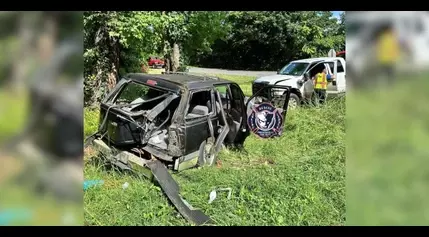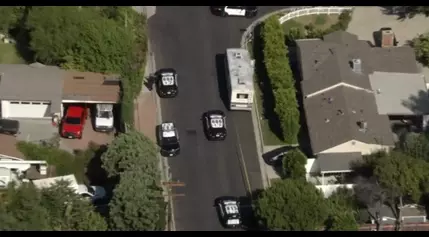News

Karter Duey, a sixth-grade student from Centennial, Colorado, sustained a concussion during a cheerleading practice in April. Her mother, Jana, recounts the journey of Karter's recovery, shedding light on the importance of proper management and support for young athletes dealing with the aftermath of head injuries.
Empowering Young Athletes to Bounce Back Stronger
Prioritizing Rest and Gradual Return to School
After her fall, Karter experienced a range of debilitating symptoms, including headaches, dizziness, and sensitivity to light and noise. Her mother, Jana, ensured that Karter rested at home for a week and a half, allowing her body and mind to heal. When Karter's concussion symptoms became more manageable, she gradually returned to school, initially attending for half-days and with accommodations that enabled her to complete schoolwork on paper rather than on a screen. This approach, in line with the latest research, allowed Karter to resume her academic routine while prioritizing her recovery.Navigating the Challenges of Returning to Sports
One of the primary concerns for Karter and her family was when she could safely return to her beloved cheerleading activities. Dr. Julie Wilson, Karter's doctor and a co-director of the Concussion Program at Children's Hospital Colorado, emphasizes the importance of getting children and teens back to their usual daily activities as soon as possible, as long as they can tolerate the remaining symptoms. This gradual reintegration, which may include light exercise that doesn't pose a head injury risk, is crucial for a successful recovery.Updating Concussion Guidelines and Protocols
In August, the Colorado Department of Education updated its guidelines on concussions, dispelling common myths and reflecting evidence-based best practices. These revised guidelines emphasize the importance of returning to school and exercise as part of the recovery process, rather than waiting for a full recovery at home. Educating families and schools about these new guidelines is critical, particularly during the autumn season when concussions from sports like football and soccer are more prevalent.Multidisciplinary Approach to Persistent Symptoms
While symptoms of concussion typically resolve within the first month, some patients may experience persistent post-concussive symptoms. In these cases, a multidisciplinary care team, including physicians, physical therapists, psychologists, and additional school support, can provide the necessary support and rehabilitation. This comprehensive approach addresses the physical, cognitive, social, and emotional impacts of the injury, ensuring a more holistic recovery.Addressing the Challenges of Undiagnosed Concussions
Despite the progress in concussion management, Toni Grishman, a senior brain injury consultant at the Colorado Department of Education, estimates that more than half of students in Colorado may have undiagnosed concussions. Reasons for missed diagnoses include lack of education, barriers to medical care, parental reluctance to inform schools, and a failure to take symptoms seriously in students with a history of behavioral issues. Grishman and her colleagues have been working to train school personnel in concussion management, but the challenge of ensuring widespread adherence to the guidelines remains.Expanding Awareness Beyond the Athletic Field
Concussions are not limited to the school athletic field or traditional sports like football and soccer. Adventure sports, such as parkour, slacklining, motocross, rodeo, skiing, and snowboarding, also pose significant concussion risks. Cheerleading, in particular, has been identified as a sport with a high incidence of concussions. Raising awareness and implementing appropriate safety measures across a diverse range of activities is crucial for protecting young athletes.Karter's Journey: Overcoming Setbacks and Returning Stronger
Karter's recovery was not without its challenges. Her mother, Jana, recounts the emotional toll of Karter missing her cheerleading team's final competition in Florida, a heartbreaking experience that left her in tears. However, with the support of physical therapy and the gradual reintegration of her activities, Karter has regained her balance and is now back to flying with her cheerleading squad, preparing to compete once again.The story of Karter Duey serves as a poignant reminder of the importance of prioritizing the health and well-being of young athletes, while also highlighting the progress being made in concussion management and the ongoing efforts to ensure that no child falls through the cracks. By empowering families, schools, and healthcare providers with the latest evidence-based practices, we can help young athletes like Karter navigate the path to recovery and emerge stronger than ever before.



































































































